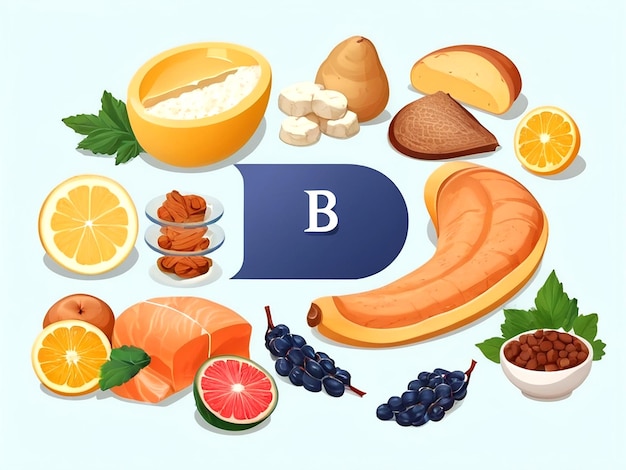A Unique Essential Nutrient
Vitamin B12 is a unique nutrient because it isn’t produced by plants, animals, or fungi. Only certain bacteria can make it. According to the Daily Recommended Intake (DRI), humans need between 2-3 micrograms (mcg) per day, though some may require up to 4-7 mcg. Natural sources of Vitamin B12 are mostly found in animal-based foods and some fortified vegetarian or vegan products. If you’re vegan, taking supplements might be the best way to get enough Vitamin B12 every day.
Top 10 Food Sources of Vitamin B12
Most vitamin B12 sources come from animal-derived foods, making it harder for vegans to get sufficient amounts. While some believe that eating unwashed vegetables might provide trace amounts from soil bacteria, there’s no evidence that such bacteria produce usable B12 for our bodies. For vegans, a high-quality supplement is essential to maintain energy levels. Those who consume meat, eggs, and dairy generally find it easier to meet B12 requirements, but this comes with other health considerations, especially regarding conventionally raised animals. While we at Global Healing advocate a plant-based diet, we accept that not everyone adopts this lifestyle, so here are the top non-vegan and some plant-based sources of vitamin B12:
Liver (Beef)
Provides 71 mcg per 3-ounce serving, meeting 2951% of DRI, 114 calories.
Mackerel
Provides 16 mcg per 3-ounce serving, meeting 667% of DRI, 174 calories.
Sardines
Provides 8 mcg per 3-ounce serving (most cans are 3-4 ounces each), meeting 333% of DRI, 189 calories.
Fortified Cereals
Provides 5 mcg per cup, meeting 208% of DRI, 160 calories.
Red Meat
Provides 5 mcg per 3-ounce serving, meeting 208% of DRI, 213 calories.
Salmon
Provides 4 mcg per 3-ounce serving, meeting 167% of DRI, 119 calories.
Fortified Soy
Provides 2 mcg per 3-ounce serving, meeting 83% of DRI, 45 calories.
Milk
Provides 1.2 mcg per cup (8 fluid ounces), meeting 50% of DRI, 83 calories.
Swiss Cheese
Provides 1 mcg per ounce, meeting 42% of DRI, 108 calories.
Yogurt
Provides 1 mcg per cup, meeting 42% of DRI, 149 calories.
Points to Remember
Vegan sources of B12, like fortified grains, are often the best way to get the nutrient, even though fortified grains can sometimes be refined and high in sugar. It’s vital for both vegans and meat-eaters to consider B12 supplements because consuming meat doesn’t always guarantee optimal B12 levels. A vegan supplement, such as our organic Vitamin B12, could be beneficial for maintaining the right amount of this essential nutrient.

